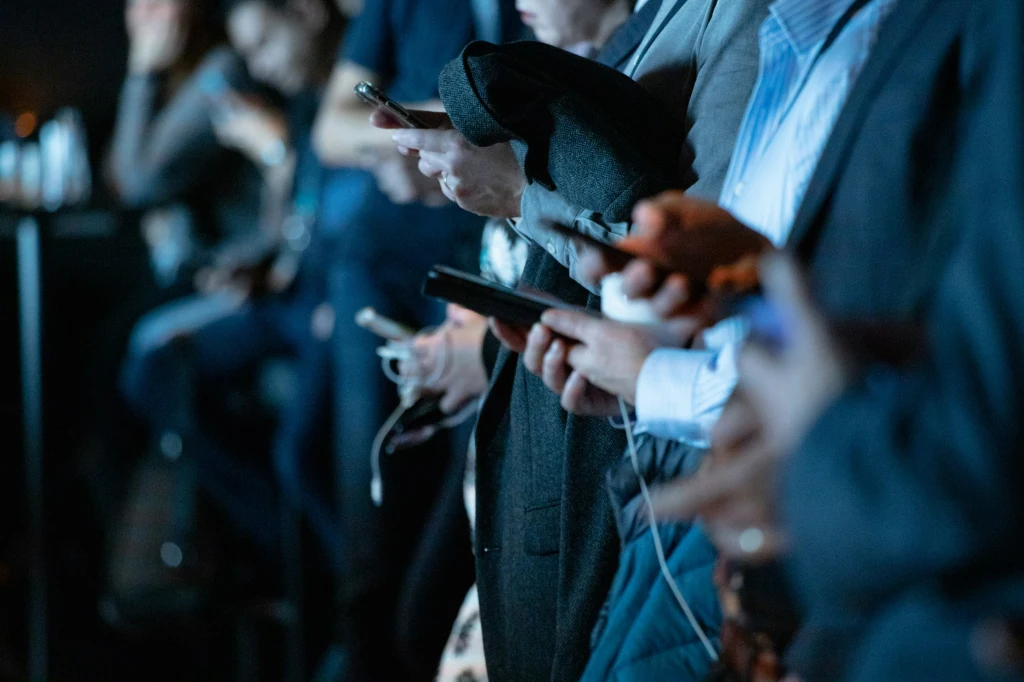
Thanks to COVID-19, we are now six months into an involuntary, planet-wide experiment of working from home or attending school remotely. Those who aren’t working from home likely have a spouse or friend who is. Those who don’t have a spouse or friends are likely my main audience. Perfect. We can all relate to something.
I’ve already read dozens of articles and studies and listened to many podcasts about the topic. And you can be sure we’ve only seen the tip of the iceberg in terms of the volume of work that will be done on it.
A bit of Googling shows the phrase “working from home pandemic” yields 753,000,000 results. Naturally, I’d like to add one more…

Below I discuss some of the lesser-known issues related to working from home or attending school remotely as well as the remedies I have found useful. These aren’t just for white-collar workers or college students who have been forced to operate from home, but for anyone suffering from feeling a little cooped up or stir crazy.
The Problem
There is a war for our attention and our minds have been drafted under the guise of innovation.
To start, there has been a loss of a general sense of others. You no longer drive to work with cars all around you. You no longer sit at a desk with people walking by you. You no longer study in the library on campus. The typical hum and drum of office or college life has been put on mute.
Especially if you don’t have kids or a partner at home while working, the normal range of attention demands you experience has decreased. Our natural focus was forced to narrow overnight with absolutely no training, let alone awareness of the matter. (Personally, I’m happy I don’t have kids during this. Juggling the roles of employee, babysitter, and tutor all at once sound awful.) This attention shift is an issue for everyone no matter the home dynamic.
It’s an issue because brain activity studies using EEGs have shown that without experiencing the social cues of nearby humans, we may become less engaged. EEGs are used to show how long it takes the brain to process various attention-demanding visuals. As you may be feeling, a lack of shared physical space has caused our brains to take longer to process and produce information.
Now that we spend all day staring at our colleagues or professors on a 13 inch, two-dimensional, blue light-emitting flatscreen, we’re going to feel it differently. Our brain waves are more likely to be out of sync in this environment. We are less creative, less empathetic, and more neurotic in this mode.
This is compounded by the fact we were already moving to a more digital world for our textbooks and projects. In his book, The Shallows: What the Internet Is Doing to Our Brains, Nicholas Carr makes the case that even though we now have access to an unheard of amount of information, that information is more difficult to absorb and retain.
This is mainly due to the amount of distraction that is inherent to technological use. With many discussions now occurring exclusively in virtual space, we are more able and more likely to shift our focus away from the meeting or lecture at hand and towards our emails, our second monitors, or even to our phones. Screen performance is worse than tactile production and absorption of information.
With less face-to-face interaction for the transfer of information, humans are absorbing it differently. Just think about how you are reading this article right now. You are likely skimming for the main point in a paragraph, often indicated by the first sentence, or a bolded line, and then you are off to the next paragraph. I’ll go ahead and assume it has nothing to do with the sub-par quality of my writing.
With so many demands on our attention, this is a necessary evil to just keep up with the barrage of words coming at us via text and images on screens. This then trains us to minimally read and focus on emails, instant messages, and even how we scan the pages of the web platforms we use to do our work.
Speaking of instant messages, we are experiencing more “dings” than ever before. The surge in collaboration technologies such as Slack and Microsoft Teams is exponentially increasing the number of notifications you receive each day. Whereas in the past these may have been isolated to your desktop only, we are now expected to carry around specific apps in our pocket for each service we use, including work platforms. This is a massive drain on productivity.
I won’t even attempt to cover the myriad physical problems from an increase in screen time such as eye strain, bad posture, and poor sleep. With no dining out, gyms being closed, and travel at all time lows, it’s safe to say the pandemic has not been great for our overall health. Even the stalwart few who are still exercising at home with free weights and YouTube videos may feel their willpower waning after so many months.

I am not saying remote work is bad or makes us less productive in all cases. The planet is getting a break from our carbon-spewing cars, our pets are getting extra love, and we may even be saving money due to less expenses related to work (assuming you aren’t one of the millions who lost your job).
And remote work is the only way we have so far been able to navigate this boat of humanity through the storm of the pandemic. But just because it can be good and necessary doesn’t mean we are necessarily good at it.
There is also merit to having fewer distractions from passersby and arriving at a “flow state” with your work which is completely healthy and beneficial, but remembering to come up for air is equally important. As once we “log off” for the night, it can be doubly hard to be present because you just spent 8 hours online and alone in your living room or kitchen, which is now doubling as your space to relax and live the rest of your life in.
There are, however, another group of folks pointing out a different set of issues with “WFH” unrelated to our attention and brain health.
I discussed the topic with a close family member who is a Senior Mechanical Engineer in the automotive industry. He noted that it was harder to discuss and debate problems in virtual space. Being that engineering is a black and white field in terms of solutions, he finds it takes longer to arrive at the correct answer virtually as compared to across the boardroom. Reed Hasting’s recent interview with The Wall Street Journal corroborates this notion for employees at Netflix as well.
Finally, there are also studies that show women are at even more of a disadvantage for remote work. If the cards weren’t stacked fairly in an office, they surely aren’t now. It will likely take years of trial and error for companies and employees to figure out the right mix of levers to pull for working from home and it will vary by sector, demographic, and personality.
More stress, less productivity, divided attention, worse mental and physical health and zero consensus about how to safely and effectively move forward. Great. So what can we do about it right here, right now?
The Solution
The common tip everyone has heard is to simply look away from your screen into the distance for about 20 seconds every 20 minutes. That’s good for your eyes. Other popular tips revolve around managing your phone a bit more judiciously. Here are some tips for smartphone usage that will make you less tired. Finally, turn your notifications off for all but essential communication during your work day. Here’s an excellent article about boundaries between work and your personal time.
With the basics out of the way, here are few lesser-known methods to improve your attention while working or learning remotely:
We don’t need to recreate an office full of people to be productive and feel better, but we do need to counter-balance the isolation we now find ourselves in and widen our attention.
Try to be more mindful during transitional moments in your day. When you first sit down at your desk in the morning, when you get up to grab a cup of coffee, or when you shut your computer down, be aware of the action and intention behind the action on a more conscious level.
Take back control of your mind and increase the quality of your attention. Disengage autopilot during these moments. This also has the fascinating and hugely beneficial side effect of increasing the perceived length of your life.
The awesome part about this is it can be learned and strengthened in you just like a muscle that gets used more and more. Some simple ways to do this are by training yourself to be consciously aware of sights, sounds, and scents. Feel sensations in your body by doing a body scan from your toes up to the back of your head.
“Cultivating this quality of mind has been shown to modulate pain, mitigate anxiety and depression, improve cognitive function, and even produce changes in gray matter density in regions of the brain related to learning and memory, emotional regulation, and self awareness.”
Sam Harris, Benefits of mindfulness
Catch your inner dialogue and try to remember it is just one thought after another, it is not who you are. Become aware of when you are thinking about the past, annoyed at a specific matter, or daydreaming about the future. All of these pull you away from being present during your already isolated day.
Relax your field of view and allow your peripheral vision a chance to play. Notice light and shadows. The multitude of shades and colors in a room. Depth and shallowness of objects in your space. This widens and strengthens your “attention muscle”.
Especially during brief moments in team meetings or lectures, try to become aware of the empty space between your eyes and your monitor. Notice how it almost shimmers.
Set a timer to just close your eyes and breathe deeply for 5 or 10 seconds. Focus on the sound of your breath or the rising and falling of your chest. Your to-do list won’t grow legs and jump off your desk when you aren’t looking. And if it does, catch it and kill it. I’ve got my own list; I don’t need yours sneaking into my office unannounced.
If you manage employees, check in with them throughout the week, with short informal chats. Don’t ask too personal of questions, but try to mimic walking past someone’s desk in the morning like you would in the office and asking how their vacation or weekend was. These types of interactions are good for engagement and job satisfaction.
Just try not to be a creep to Janice in Accounting via Skype.
Instead of having the TV or music playing in the background, try a less intrusive and more relaxing set of sounds. My personal preference is a bit of crackling fire mixed with rain and a slight breeze.
When you do finally flip the screens off at night, you can also read a book. Not your iPhone. Not your Kindle. A physical book. Not to be a Luddite, but to counterbalance negative effects of short-form, screen-fed, quick hits of data.

Reading a physical book forces you to slow down, take your time, and contemplate the ideas. Because there’s no hyperlinks or red notification flags, you can improve your long form attention.
By not feeding your brain extra blue-light, you’ll even be able to sleep better at night, thus leaving you a bit more refreshed for your big day of doing house chores in between answering work emails and comparing your local weather report with your remote teammates.
My personal favorite way to read at night is with the lights off and this book light that I bought off Amazon for ten bucks. Plus, it lets my partner sleep without having a bedside lamp turned on in the room. The amber glow is perfect to allow melatonin production to naturally begin in the body.
Companies across the globe, big and small, are likely just as unaware of all of this as you may be. Even if they’re aware of these problems and solutions, especially in the U.S. you’re disposable when 13 million unemployed people want your job, so there’s little incentive to give you any personal time to work on these problems, let alone the resources to do so. It is up to us worker bees to take our health into our own hands during this time.
Resources:
- Generation Work-From-Home May Never Recover
- Art of Manliness Podcast #632: How the Internet Makes Our Minds Shallow
- Gottman Institute: How to Work from Home and Supervise Home-Based Learning
- Waking Up App and Website
- Staying Focused with a Simple Method
- The Reading Brain in the Digital Age: The Science of Paper versus Screens
Sign up for our monthly newsletter (we do not spam your inbox or sell your information):
Like this article? Check these out!
Why the Quality of Your Mind Influences the Amount in Your Bank Account
Embracing this mindset can help you separate wants from needs more consistently and allow both your bank account and life satisfaction to increase. (6 min read)
Sensible Snack: The Psychology of Your Future Self
The past is never what it seems and any version of the future is just as likely as the next. (4 min read)
How Values-Based Spending Can Make You Rich
Why focusing on your values is a good place to start your path to financial independence. (8 min read)









You must be logged in to post a comment.